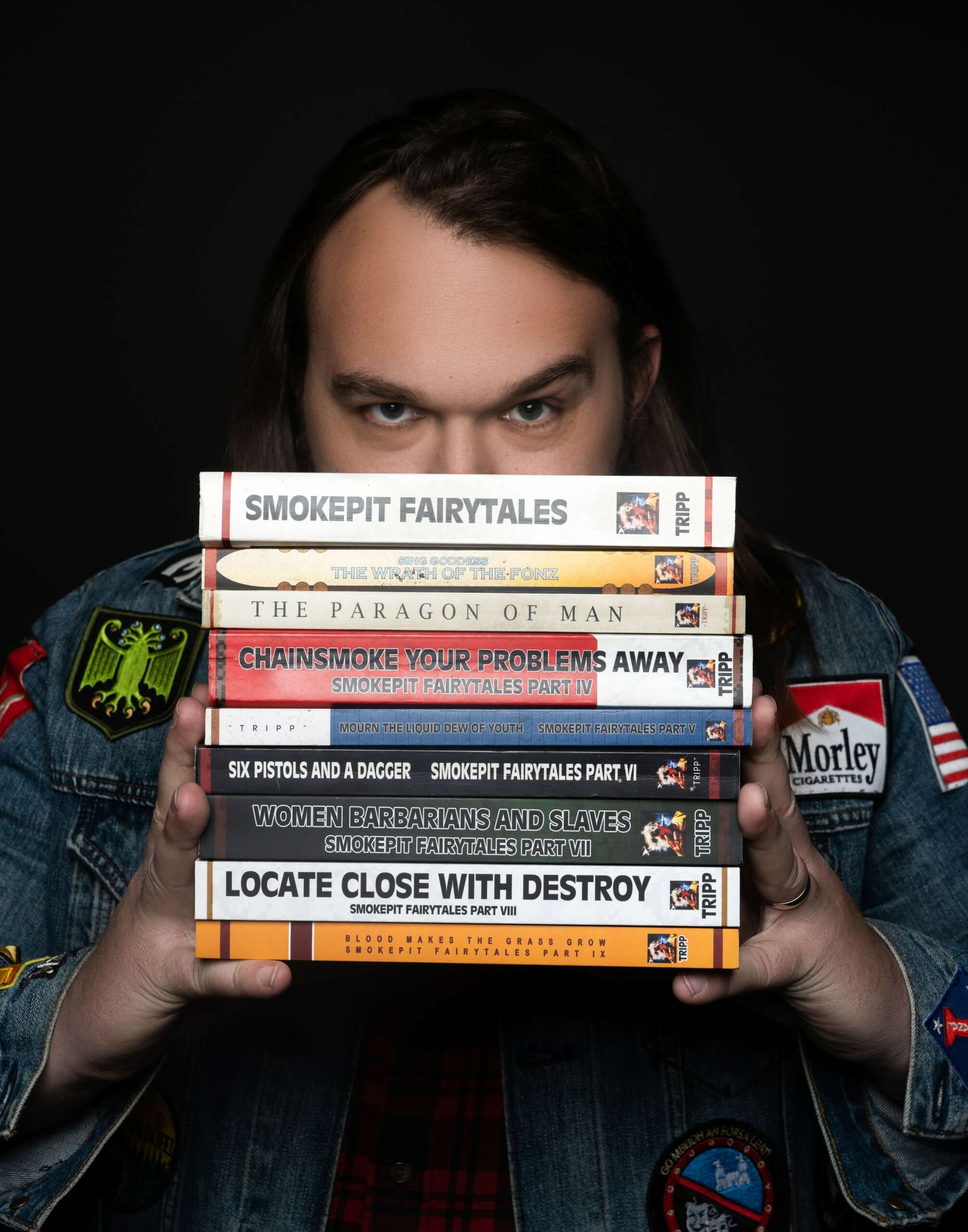We were lucky to catch up with Tripp Ainsworth recently and have shared our conversation below.
Tripp, looking forward to hearing all of your stories today. Can you talk to us about a project that’s meant a lot to you?
The Smokepit Fairytales novel series has a near and dear place to my heart. I’d been thinking of some grand epic tale since I was a kid, and scenarios that I’d want to throw characters I had into, and little if any of those characters or plot elements made it into any of my writing, but the constant day dreaming did eventually start forming story beats as i got older. When I was in Afghanistan in 2008 with 2nd Battalion 7th Marines I started keeping a couple of different journals, one was full of things that was going on around me, and the other was a pocket book that I’d write down funny things that I saw or heard someone say. The personal journals faded off, but the pocket book of things people said around me kept getting entries for years. I think it was around 2013 I finally sat down and typed those old journals into word documents. I wasn’t initially planning on making a scifi novels series out of it, the original project was just going to be a series of short stories about shenanigans my friends and I got into, and again, at this point the tale was a jumbled mess of random words and half of ideas. Then in 2014 I was on the USS Bonhomme Richard, deployed to the eastern Pacific, and I found myself with nothing to do, so I decided to take another wack at these stories that I had sitting in the back of a folder somewhere, and thought that instead of a bunch of random short stories, it would be fun to consolidate them into a narrative that happened to a small group of characters, and I ran with it from there. While in the novels there’s space pirates, and aliens, and ghosts, giant robots, love, hate, peace, war, revenge, redemption, giant lizards, zombies and everything in between, the core of the series itself is kind of an elaborated autobiography… if the person telling the story was an unreliable narrator who was off his meds. All these characters in the books, I have a personal relationship with, I KNOW these people, and the real life inspiration behind them, as well as many of the circumstances they’ve traveled through, though, the unembellished version of it didn’t happen on Mars or in a post apocalyptic wasteland.
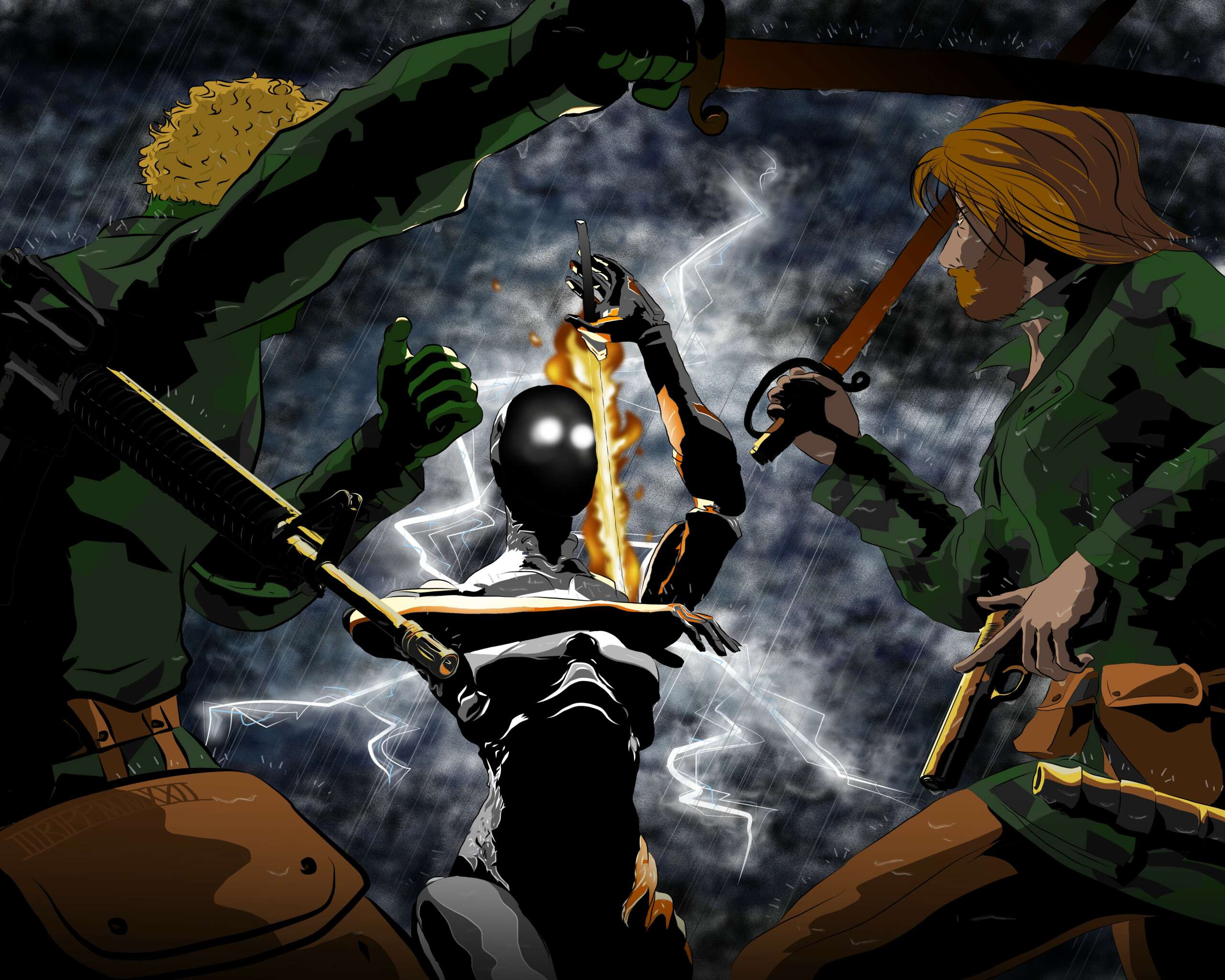
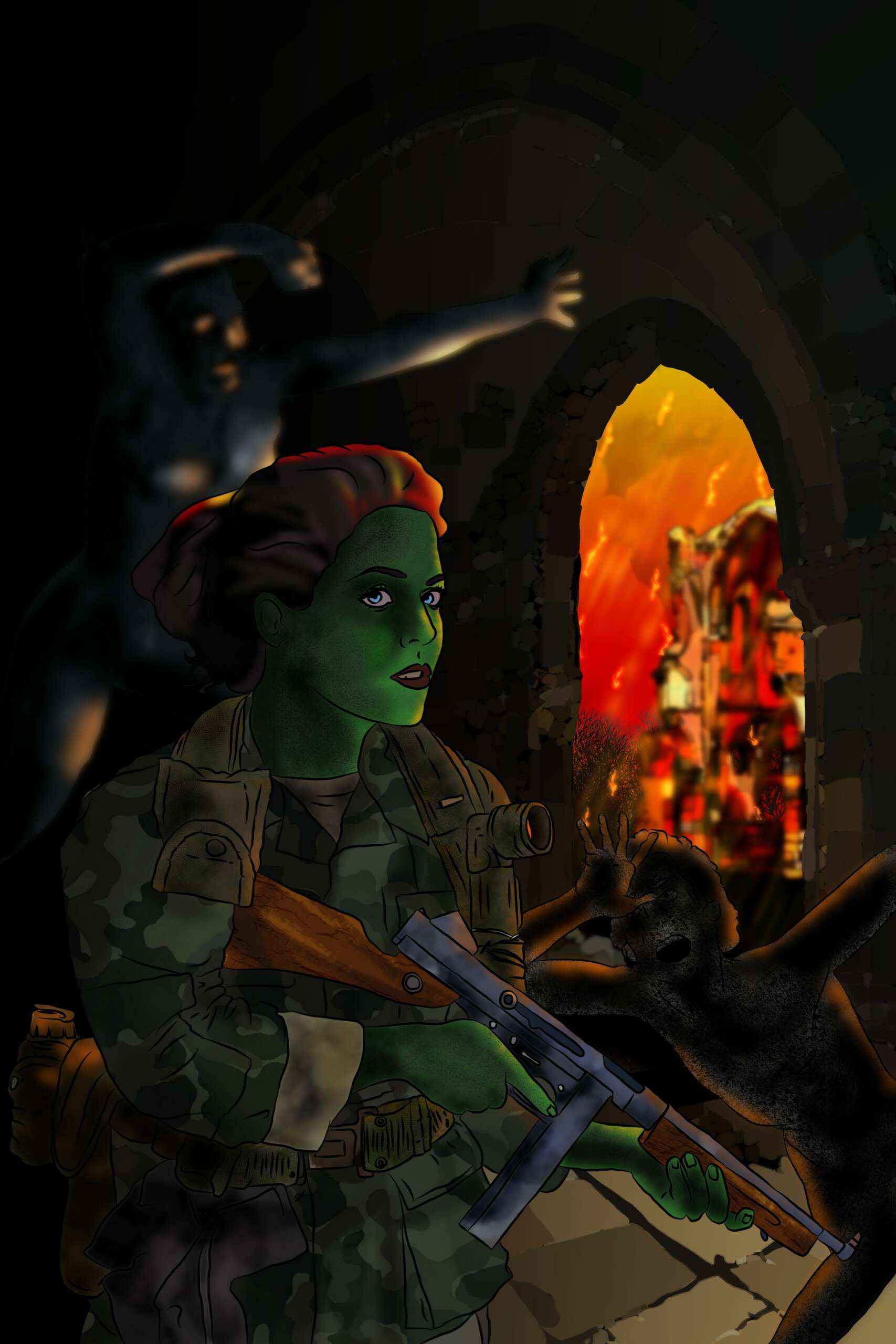
Tripp, love having you share your insights with us. Before we ask you more questions, maybe you can take a moment to introduce yourself to our readers who might have missed our earlier conversations?
I’m a novelist, and while the settings of my work is far fetched, the core elements of the stories are ground down to earth, and the kinds of things that people go through in real life. For example in my novel “Chainsmoke Your Problems Away,” the story’s based around a group of Marines stationed on Mars in the near future, and they deal with the drama of life in the barracks, they struggle with relationship issues, they go through the monotony of deploying on a ship and find ways to deal with the boredom of living in the desert and being stuck at sea. I pulled those characters’ struggles from my own experiences, and the trouble I got into with the people around me while I was in the Marines, always far from home either it be stationed at a base on the other side of the country from where I’m from, or deployed out on ship at all reaches of the globe. And I make the characters deal with issues we faced while we were in that profession, and the story resonates strongly with people who spent their early twenties out and about the world. It also serves as an adventure tale for those who wasn’t to escape for a while. Anyway, I started writing seriously while I was deployed to the east asian pacific in 2014. At the time I’d been in the Marine Corps for seven or eight years, I was a sergeant, and I wanted to tell a story. Now, everyone has a story to tell, the hard part is sitting down and doing it. You can’t be a writer unless you put your but in a chair and your fingers on the keyboard, and I sat down and attacked it. I had no idea what I was doing, but was determined to figure it out.
I’m originally from Jacksonville, Florida. I moved up and down the east coast growing up, and in 2006 I joined the Marines. I was the last Marine to go through the Defense Information school’s illustrator program before the Marines got rid of the job, and I was merged into printing. Like everyone else, I joined under the assumption that “Every Marine’s a Rifleman,” which isn’t true, and didn’t want to get stuck behind a xerox Machine for my whole career so I thought myself photography. In the Combat Camera field in the Marines, there’s printing, photography, and videography, and we’d all operate in the same section. My break came in late 2007 when most of my unit was sent to Iraq and I was left as part of the remain behind element. There were only ten of us that didn’t deploy, and in that time I filled in for the photographers who were gone, so when 2008 rolled around, and they needed people to go to Afghanistan on short notice, I was in a prime spot to volunteer and spent April to December of 2008 in the Helmand Province. To my knowledge, we were the first Marine Corps Battalion that was on a dedicated mission to Afghan. We were supposed to be there for five months to train the local police and then come home, however it turned out that no one told the pentagon that there was still a war going on. Instead of training the police for five months, we tangoed with the Taliban for nine. The four extra months we were there were spent holding down the fort while Headquarters Marine Corps geared up the better part of a division to replace our battalion’s footprint. We had roughly a thousand Marines holding down 37,000 square miles of territory, and we lost twenty men, with a little less than two hundred wounded.
There was a stark contrast with my next deployment, which from what I understand would be the standard. When I went back to Afghanistan with 3rd Battalion 4th Marines in 2009/10, we lost two guys (one of which was due to friendly fire), and only a handful of people were wounded, and most of those were gas breaking legs or getting concussions from IEDs instead of the constant gunfire 2/7 faced the year prior.
When I got back from Afghanistan the second time, I volunteered to go back for a third, but instead I was sent to the 11th Marine Amphibious Unit (11th MEU) and deployed on the USS Makin Island’s maiden voyage to the western pacific. Over the next seven months we sailed from California to the Middle East and landed in a long string of countries in between both as post calls and to train with other nations’ militaries. We did jungle training in Malaysia, had Christmas in Singapore, I got to see the lost city of Petra, and Djinn caves in Oman, and that all was one hell of an experience. Then after returning to the states, I was sent to Quantico to work at the information operations center. I went to the psychological operations course at the JFK Special Warfare center in For Bragg (I think they changed the base’s name since then) and then deployed again on ship with the 31st MEU out of Okinawa Japan. On the USS Bonhomme Richard, is where I sat down and wrote my first two novels. After coming back from Japan, I transferred out of PsyOps and went back to Combat Camera at Twentynine Palms’ base unit where I served my last few years in the Corps.
I pulled heavily from my experiences around the globe to weave the tale in the Smokepit Fairytales series. Many circumstances plucked right out of a journal, though names were changed, and aliens were added. But wrote my first two novels on the BHR with the 31st MEU, and set out to find a literary agent to represent my work. Now I made the mistake of not going to college with someone who’d become a literary agent, and the critical error of not being famous or having rich parents before I decided to write, so I was stuck doing all the grunt work. Writing isn’t the hard part about being an author, marketing is, and with no on going to bat for me, I had to do it all myself. I started making friends who were in a similar situation as I was and figuring out how the game was played. No one had any real answers or practical advice beyond “Already be famous” which wasn’t an option, so I took off from the bottom. I couldn’t get a literary agent to even email me back, so I started making friends with people who knew agents until I could land a meeting with one off virtue of networking, but even then that bore no fruit. The meeting I had with the agent seemed to go well enough, but he never followed up with me, and I only found out he wasn’t interested after I looked up his twitter and saw one of his tweets berating me as a nobody. Real professional…
So I did some more digging and went the self publishing route and pushed through Amazon’s KDP. I think the first year I sold something like 20 books, which for a no-name author, is about standard. That point in time though is where most authors give up. They shoot their shot, it lands flat, and they move on to something else. I, however, had a story I wanted to tell and it was going to be told come hell or high water. I kept writing and marketing myself and making what connections I could. There’s never been a big jump up, but slowly over the years, I’ve pushed to a respectable level of authorship. It’s coming up on eight years later, I just published my twelfth novel, which was the end cap of the Smokepit Fairytales series, and I have a small army or readers who are all heavily invested in my work. There’s a few readers who have been around since shortly after day one, and new people message or email me every day saying that they just burned through my books and want to know when the next one’s coming out. For me, the key to it all has been community building. I try to respond to everyone who contacts me, and in turn those people spread my work word of mouth. To use a metaphor, I didn’t get a loan or have my parents buy my house for me; we, my readers and I built this house brick by brick.
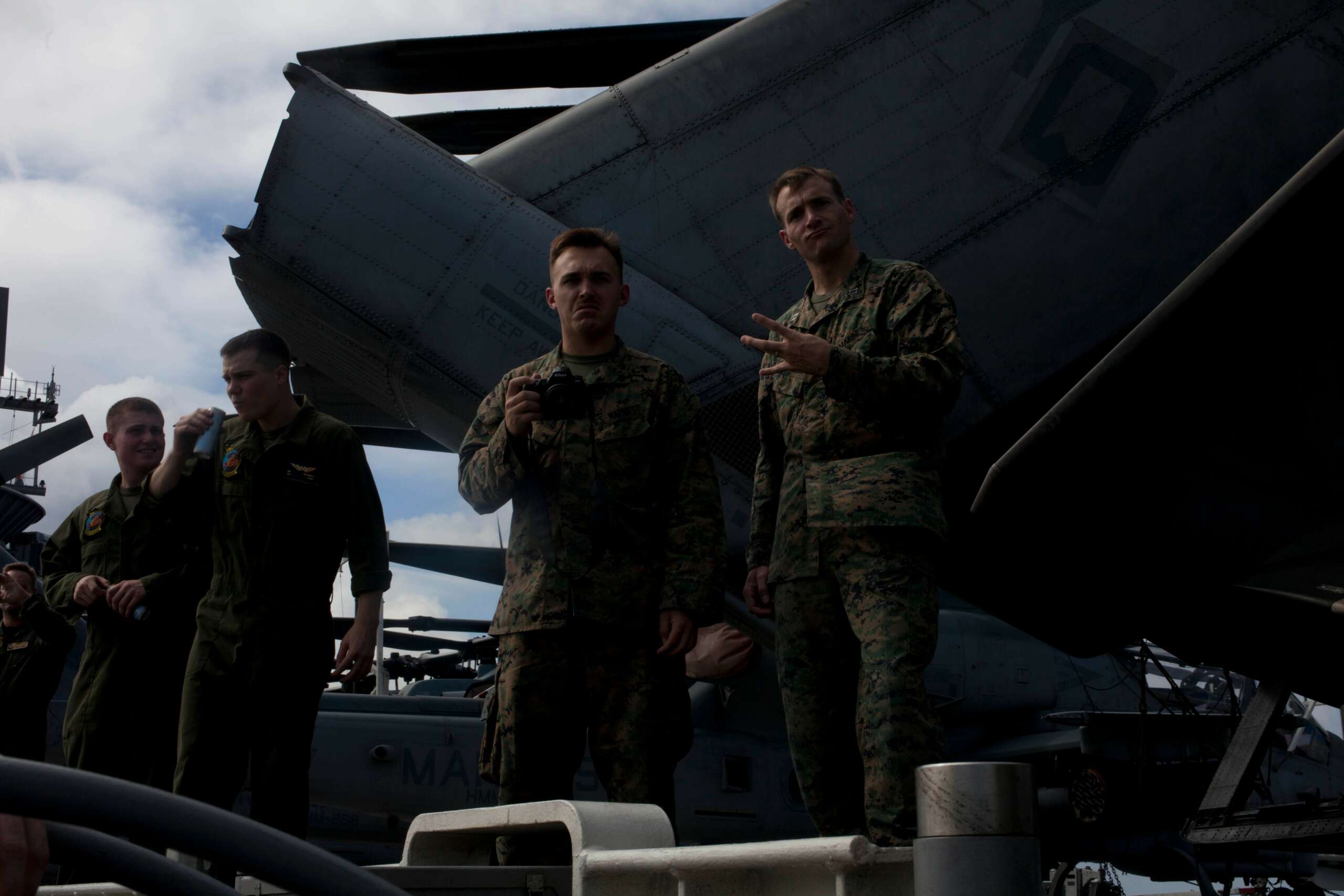
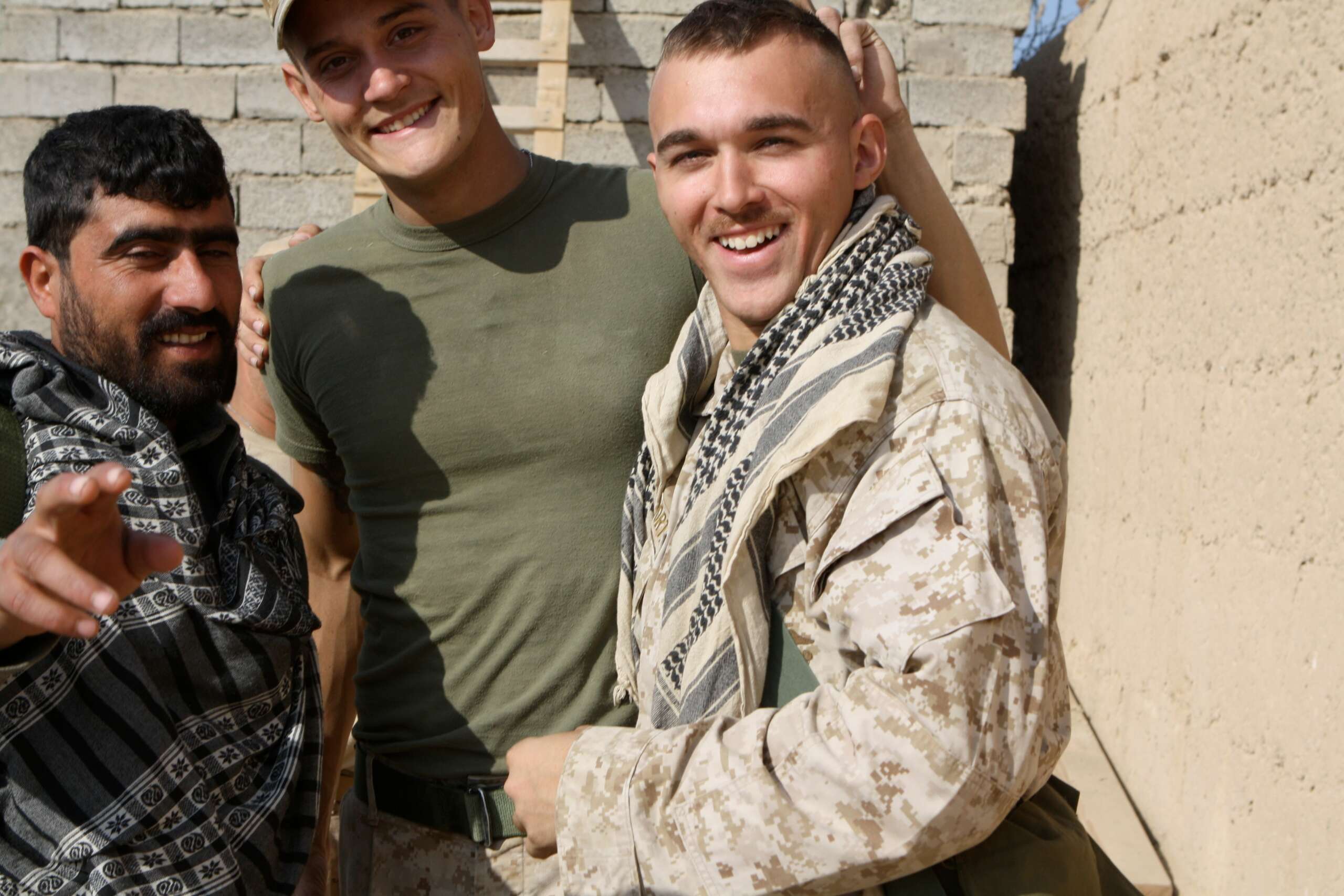
Is there a particular goal or mission driving your creative journey?
I want to give people a story that resonates with them, that they can enjoy reading and fall into and forget about the world around them. I’ve constructed an immersive story in my books that strikes the right chords of its readers. I wouldn’t call my books military-science fiction, even though there’s a scifi setting and it’s about people in the military. Science Fiction in general tends to be very technical, and I avoid that in favor of character drama and a strong plot. And Military books, especially in the last twenty years, have usually been self-glorification tell alls that only focus on how cool the author is, something else I sharply avoided. I wanted to give people an alternate road. One where the story is in a setting familiar to the reader without the narcissism of a Ex-Navy SEAL, ranger, sniper, space shuttle door gunner spending 200 pages tell thing the reader why he’s more cool than them. I sought to, and think I succeeded, in telling a tale that people can identify with, that they can read and think “That could be me” or better yet “That’s something my friends and I got into” vice another ghost written “true story” of a Navy SEAL’s black ops rampage.
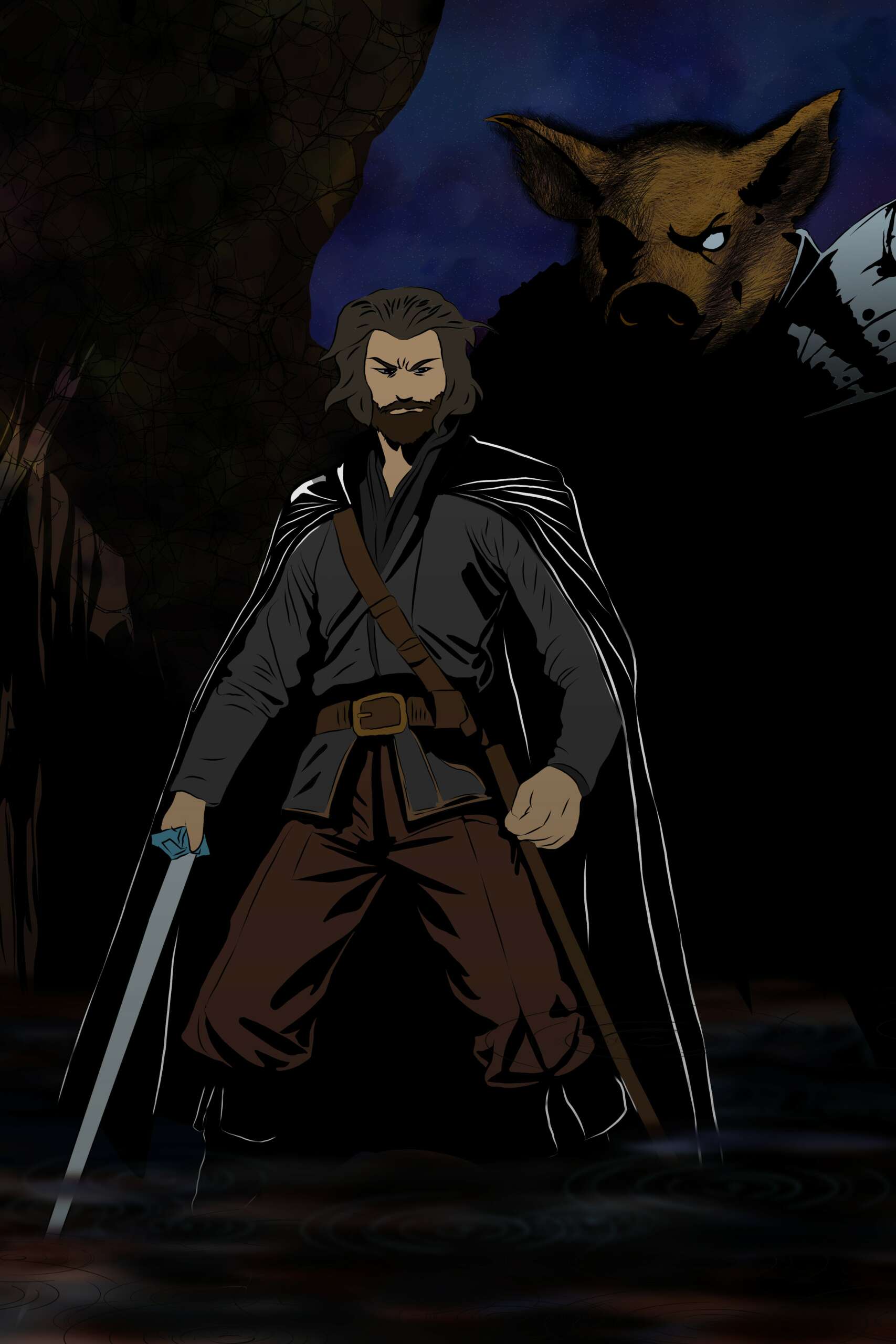
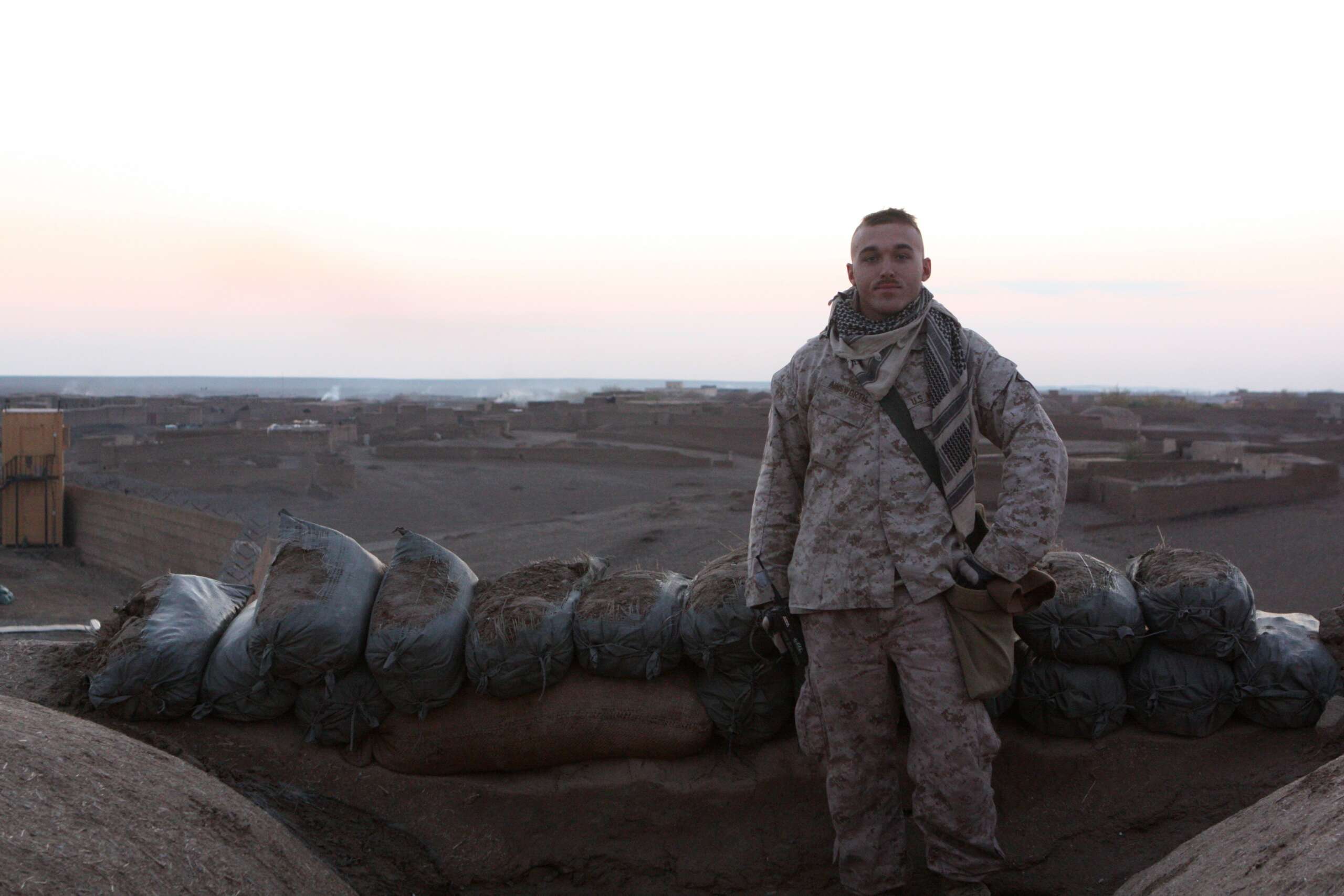
For you, what’s the most rewarding aspect of being a creative?
People reading my books and telling me that they’ve been in similar situations that I’ve put the characters in, and that they’ve laughed and cried while their eyes were on my page is near the top, but the number one thing that makes me proud of my work is when people email me and tell me that they had a friend make them read my books, and that Smokepit Fairytales got them to start reading again. It means SO much to me that it’s hard to put into words when someone emails me something to the effect of “I was part of the invasion of Iraq in 2003 and I haven’t read a book since high school, I decided to give your book a shot and read through all twelve of them in a week.”
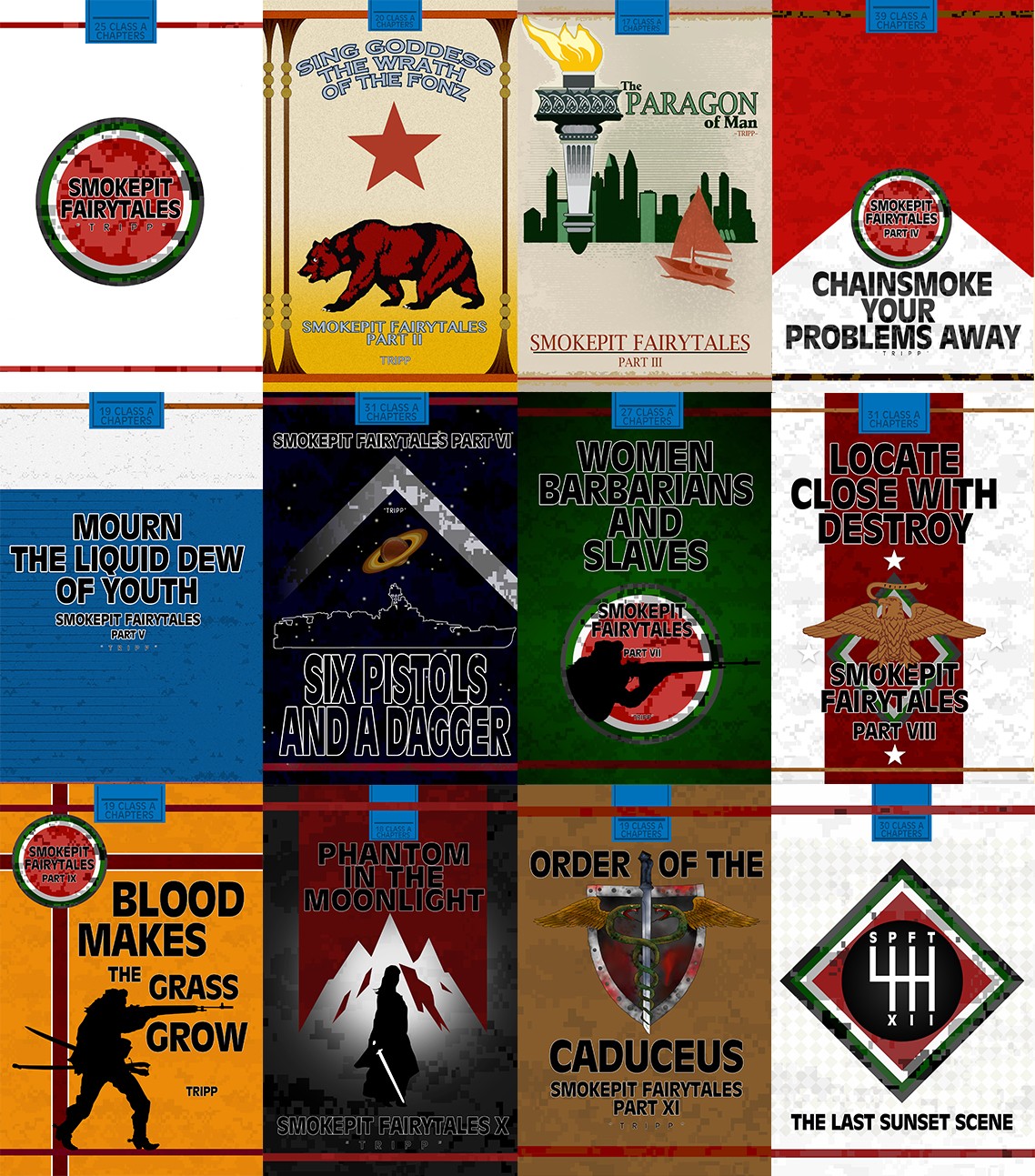
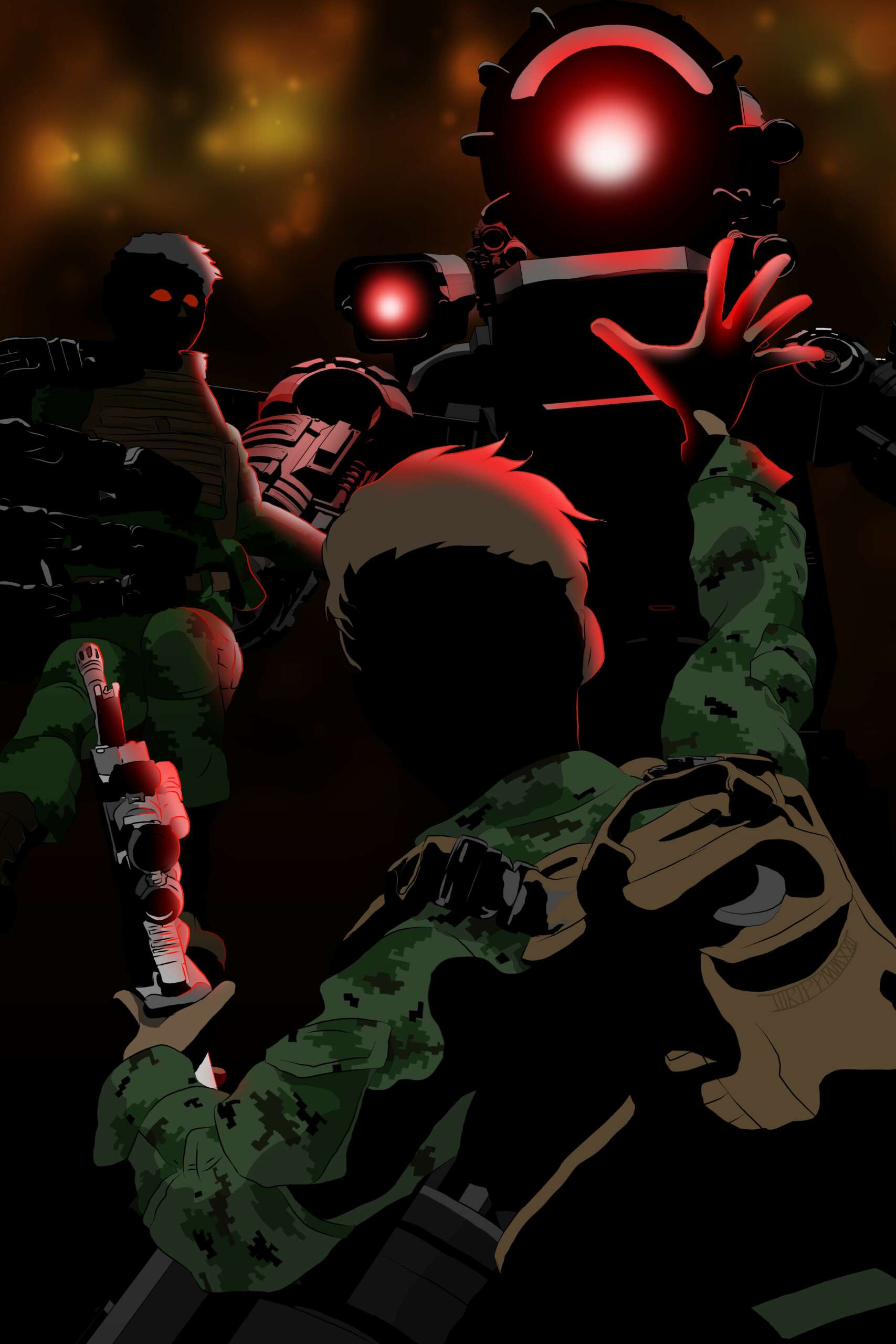
Contact Info:
- Website: smokepitfairytales.com
- Instagram: https://www.instagram.com/trippainsworth/
- Youtube: https://www.youtube.com/channel/UCzaCQWpvxuJrRg7nbEu6KcA
Image Credits
The photo with me holding the books is by Bryan Wark.


